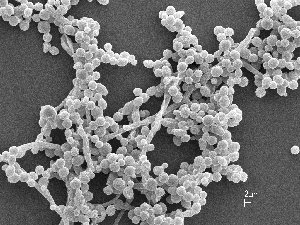
Spathaspora passalidarum, one of the fungi sequenced for this paper
(Courtesy of Thomas Kuster at USDA, Forest Products Lab)
Currently, converting cellulosic biomass into biofuels is inefficient and costly. One of the barriers to reducing costs and yields is that xylose, a five-carbon sugar that represents nearly half of available sugars in plant (in the form of hemicellulose), is extremely difficult and time-consuming to break down using enzymes sourced from conventional yeast strains.
“This research has provided us with a great genomic toolset,” says study’s lead author Dana Wohlbach, a postdoctoral researcher at UW-Madison. “We’re excited to explore new ways to increase yeast’s ability to consume xylose and improve ethanol production for cellulosic biofuels.”